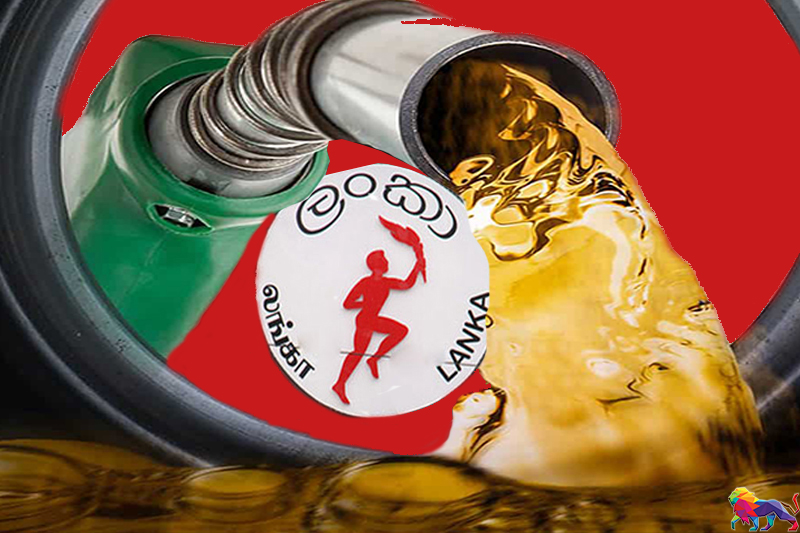Energy minister Udaya Gammanpila’s appeal to motorists this week to use fuel sparingly as the petroleum utility faced a forex shortage as money was printed to keep rates down and fund state expernse has sparked panic buying.
Long queues were seen at filling stations in Colombo and elsewhere on Friday after the ministry said it had diesel stocks for 11 days and petrol for 10 days.
Soon after hearing the country’s fuel stock position announce on radio on Thursday night, motorists rushed to fill up but found fuel depots had closed earlier than usual because of the daily night curfew starting at 10 pm.
By Friday morning, queues were forming outside pumping stations in Colombo and elsewhere.
“The reality is that we are in a foreign currency crisis,” minister Gammanpila said on Twitter on Tuesday “Please use fuel economically to save foreign currency for much needed medicine & vaccines.”
Earlier too, the outspoken minister had made it clear that the government was unable to hold large buffer stocks of fuel as the Ceylon Petroleum Corporation was unable to source the dollars needed to finance it.
As motorists rushed to fill up, minister Gammanpila tried to assure that the CPC had sufficient stocks.
“NO FUEL SHORTAGE,” the minister said in capital letters on Twitter and suggested that he would be the first to admit if there was one.
“I have repeatedly stated that if there was a fuel shortage, I would have told the nation before anybody else. I have always been truthful to the people and informed in advance about the price hike. The first to announce about the foreign currency crisis.”
By noon, many shed ran out of Octane 92 petrol and ordinary diesel. At the Alexandra Place shed in Colombo, there was no Super diesel and Octane 92 petrol by noon and hundreds of motorcyclists and diesel SUVs were turned away.
When motorists who usually buy 10 litres fill their tanks to the brim, sheds will run out of supplies until the next fuel delivery truck comes.
Meanwhile, the long queues for LP gas were not seen on Friday as dealers completely ran out of filled cylinders following a run on supplies after Laugfs Gas halted their operations saying they could not sell at the government regulated rates.
The gas shortage had already led to long queues to buy kerosene oil that is used as an alternative in stoves.
President’s Secretary P. B. Jayasundara had announced earlier this month that the country should reduce petroleum consumption and move towards renewable energy to avoid fuel rationing by the end of this year.
Sri Lanka on Thursday raised its overnight policy rate at which overnight money is printed from 5.50 percent to 6.00 percent, but most of the instability and reserve losses have come from money printed through ceiling rate in Treasuries auctions.
Money is printed partly to keep rates down and partly to fund state worker salaries and other spending, after a tax cut in December 2019 decimated state finances.


